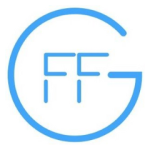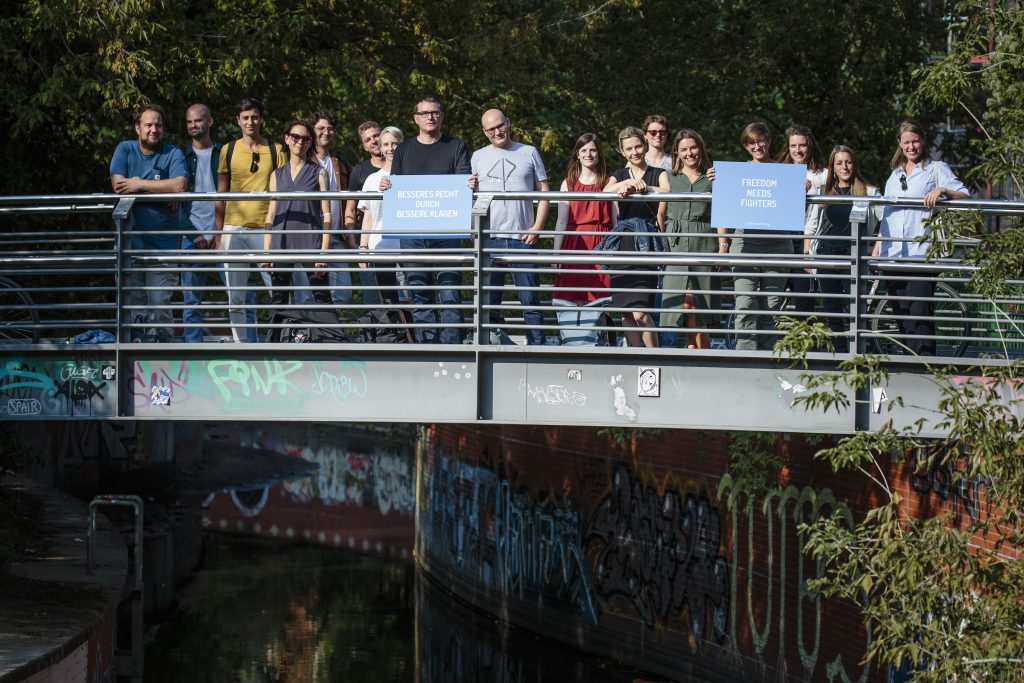Member in the Spotlight: Gesellschaft für Freiheitsrechte
Gesellschaft für Freiheitsrechte (Society for Civil Rights) is a Berlin based non-profit human rights organisation that protects every individual’s right to freedom of expression, equality and safe and private communication – especially on the internet.
This is the 14th article of the series “EDRi member in the Spotlight” in which our members introduce themselves and their work in an in-depth interview format.
Today we get to know more about the Gesellschaft für Freiheitsrechte (GFF), which has been part of the EDRi network as a member since 2019.

Gesellschaft für Freiheitsrechte Q&A
1. Who are you and what is your organisation’s goal and mission?
Gesellschaft für Freiheitsrechte (Society for Civil Rights) is a Berlin based non-profit human rights organisation that protects every individual’s right to freedom of expression, equality and safe and private communication – especially on the internet. Our mission is to establish a sustainable structure for successful strategic litigation in the area of human and civil rights in Germany and Europe. We focus on protecting people and organisations that ensure a vital, discrimination-free and equal democracy.
2. How did it all begin, and how did your organisation develop its work?
The initial idea was born when GFF’s president, Ulf Buermeyer passed a Master’s degree in American law at Columbia Law School and studied how American NGOs like EFF and ACLU protect digital rights by means of strategic litigation. After his return to Germany, Ulf and a couple of friends and activists got together and founded GFF. Initially the founding team prepared GFF’s first cases in their spare time. GFF went public in 2016 and rapidly gained several hundred supporting members, enabling GFF to hire its first staff member in 2017. Since then GFF has grown to around 15 people in various paid capacities and prepared several dozen cases, among them a lawsuit against indiscriminate spying on internet connections by Germany’s secret agency Bundesnachrichtendienst (BND) that led to a major victory before the Federal Constitutional Court in 2020.
3. The biggest opportunity created by advancements in information and communication technology is…
Communication and information technologies help us to connect with others all over the world. Through this technology, freedom of communication, which is fundamental to a vital democracy, can be realised. People can share and spread news and information faster, which makes it easier to work together and achieve a common goal. Especially in times of crisis the time factor is crucial. Just imagine Covid-19 without the internet. Communication technology gives us the opportunity to be faster than the virus by sharing research in real-time and globally operate as one very closely connected science community. The right of everyone to benefit from and share research that is publicly funded, by switching research publications to an open access policy, is a right that we want to protect with our project control ©.

4. The biggest threat created by advancements in information and communication technology is…
Information and communication technologies are a curse and a blessing at the same time. Whilst they give billions of people all over the world access to information that is crucial for a vital democracy, they are becoming a more powerful instrument of surveillance by the minute. The GFF strives to protect individuals and organisations against excessive surveillance executed by the state or secret services.
5. Which are the biggest victories/successes/achievements of your organisation?
One of our biggest victories was the case against the BND mentioned above. The law that GFF managed to have invalidated, authorised BND to wiretap internet traffic globally – and to track certain people or organisations without cause. This law completely ignored the freedom of open and private communication and was therefore, amongst others, harmful for the work of journalists and activists abroad. Together with organisations like Reporters without Borders, the GFF filed a complaint in 2018. In March 2020 the constitutional court in Karlsruhe decided that this practice was in fact unconstitutional. For the first time, the constitutional court recognised that the fundamental rights enshrined in the German constitution do apply when German agencies surveil non-Germans abroad. In the course of the coming months we are going to weigh in on the reform of this law, to ensure that the civil rights standards are respected this time.
6. If your organization could now change one thing in your country, what would that be?
Our ultimate goal is to enable political representatives to gain greater awareness for the civil rights implications of laws. We want them to think twice about passing laws that don’t adhere to civil rights standards or only meet the bare minimum, knowing that if they fail to respect fundamental rights, we will take them to court.
7. What is the biggest challenge your organisation is currently facing in your country?
In times of crisis, it becomes very obvious how democratic, equal and fair a country really is. With Covid-19, our democracies face new challenges: To contain the virus it is necessary to restrict some parts of public life to find a balance between the right to health and life on the one hand, and civil liberties such as freedom of assembly and freedom of movement on the other hand. We have to be vigilant that these restrictions remain proportionate and that the crisis isn’t used as a pretext to roll back fundamental rights, such as the right to privacy. From the start of the pandemic, the GFF has been monitoring whether Germany is keeping a balance between keeping the virus in check whilst at the same time ensuring a vital democracy. For the GFF it is very important to make sure this balance is kept, since examples like Hungary show, that this crisis can be instrumentalised to restrict civil rights beyond necessity. Our organisation is therefore trying to be a helpful partner in figuring out this predicament. Through a FAQ format on our website we try to answer most of the questions that the public might have.
8. How can one get in touch with you if they want to help as a volunteer, or donate to support your work?
Through the e-mail address you can contact us with questions or concerns. If you would like to be informed about our work, sign up to our newsletter. If you’d like to fight for civil rights with us, please become a member.
Discover more about GFF





